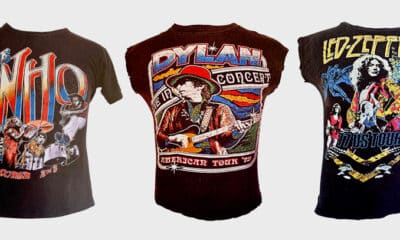MOLLY BAZ KNOWS HOW to create a brand – and sell it. She’s a self-described “cook, recipe developer, video host, cookbook author, weenie lover, and caesar salad enthusiast with a lifelong love of cooking, eating, and teaching other people how to cook,” according to her website (mollybaz.com), plus a former senior food editor at Bon Appétit magazine. In 2020, she published a cookbook, launched a recipe club, and started selling merch – Molly Merch, to be exact.
Baz had the idea to design, create, and sell merch related to her brand pre-COVID-19. Lea Sindija’s company is new; born in the pandemic. Where these two female business owners meet is when touring came to a screeching halt in 2020. Sindija, talent agent, event producer, and founder of Bennu Brands, was looking for a unique way to sell merchandise for the musicians she represents.
“Merch has always gone hand-in-hand with touring,” she says. “When there were no more live shows, I still had this great knowledge of producing merch. So, we started with direct-to-consumer campaigns for the musicians who weren’t touring. We were having such great success with it, we started approaching people who aren’t musicians, saying ‘Hey this could be an interesting revenue stream and a way for you to engage with your fans and give them a tangible product in a time when people aren’t connecting in a typical way.” Enter Baz, looking for a partner to launch her line.
“We do everything from start to finish. So, design, process of creating what the merch looks like, all the way through to building the website, the online sell, the production, and then the fulfillment and customer service,” says Sindija. “Molly was unique because she already had designs. She came to us to figure out how she could get them made.” Bennu adjusted the designs slightly to make them more palatable for garment. “We helped take all these ideas she had and actually implement them and make the garments and get them to her fans.”
Bennu’s production model is to not hold any inventory ahead of time. “This is to alleviate risk during the pandemic,” says Sindija. “So, we designed the products, we created samples, and then we launched the sale.” The sale lasted five days. Bennu produced exactly what was ordered. Sindija says this is the company’s game plan moving forward, partly because of COVID restrictions, warehouse availability, and also funding money upfront to create garments. “Plus, on the back end, it’s more environmentally friendly and sustainable to only produce what we need vs producing a bunch of stuff and trying to move it, or not producing enough inventory and having to go back to production and produce even more.”
The embroidery, cut and sew, dyeing, and screen printing were completed by Emory Park in Los Angeles. The shop used its M&R Gauntlet II automatic screen printing press and Comfort Color T-Shirts for the blanks. The hoodies and crew necks came from a local distributor. Because of COVID-19, the availability of blanks has been very challenging, says Sindija. “Some companies had a couple hundred smalls and larges, but then only 10 mediums. The brand we normally use that is more sustainable, they don’t hold inventory. Plus, you have to place your order 8 to 12 weeks in advance, which is extended even more during the pandemic.”
Advertisement
Another challenge was their timeline. “From the moment we decided we were going to do this – from the design to shipping – we were operating on an eight-week timeline. That’s normally what we would take for production alone,” says Sindija.
A couple thousand units of Molly’s Merch were sold in the first sale. A quarter of the product was shipped internationally, to places like India, Japan, Australia, New Zealand, Norway, and Sweden.
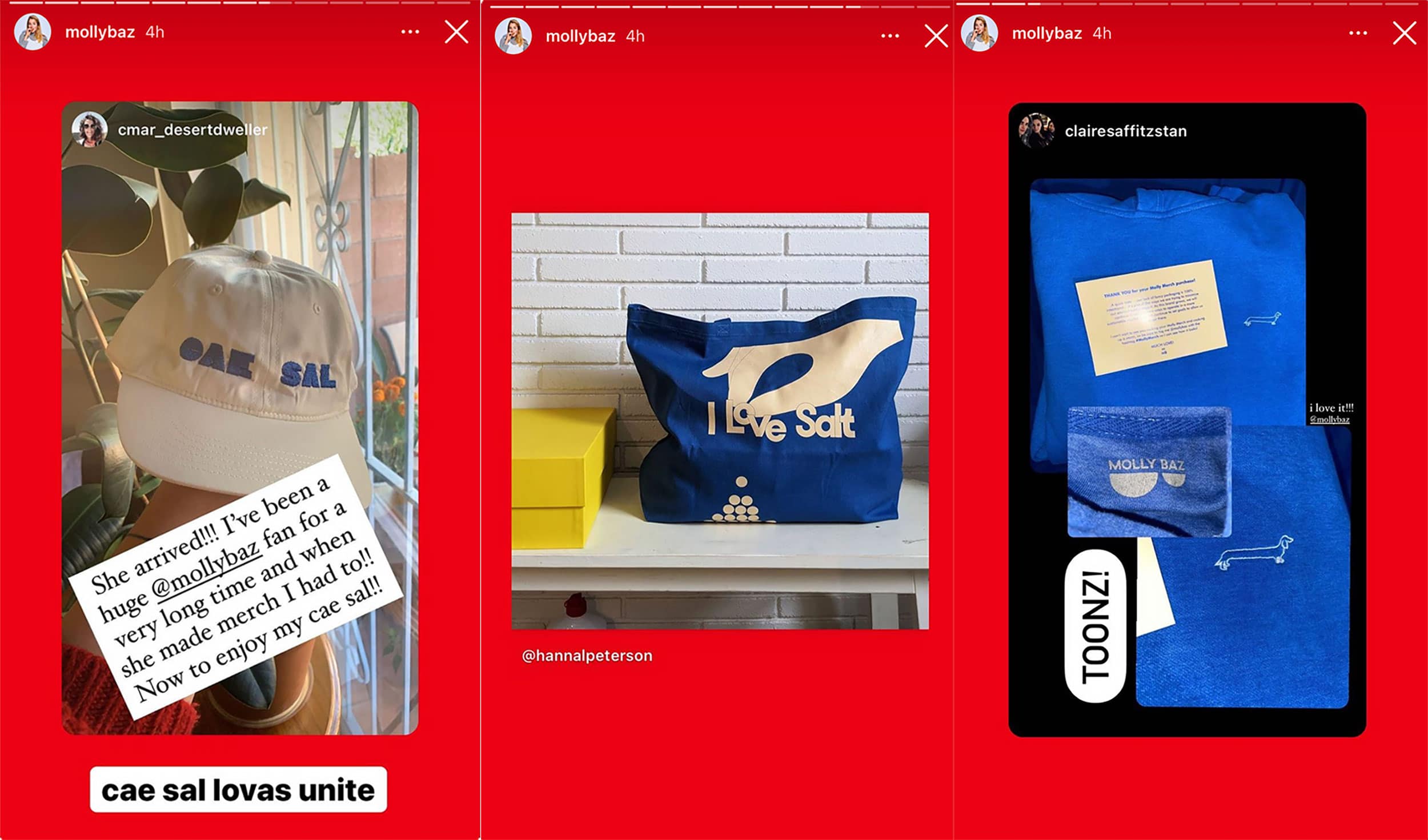 “Normally when we do a sale, we’ll always have a few top sellers and a few that didn’t do so well, so we’ll know on the next drop to exclude those items, but overall, all of Molly’s items sold really well,” says Sindija. The top two items sold were the yellow apron and the yellow tie dye crew neck with Baz’s weenie dog, Tuna, embroidered on the chest. Sindija thinks these sold the most because Baz wore them while promoting the sale on Instagram. Baz has 620,000 followers (@mollybaz).
“Normally when we do a sale, we’ll always have a few top sellers and a few that didn’t do so well, so we’ll know on the next drop to exclude those items, but overall, all of Molly’s items sold really well,” says Sindija. The top two items sold were the yellow apron and the yellow tie dye crew neck with Baz’s weenie dog, Tuna, embroidered on the chest. Sindija thinks these sold the most because Baz wore them while promoting the sale on Instagram. Baz has 620,000 followers (@mollybaz).
A lot of people have asked Sindija if the first sale was successful. “The way we’re measuring success is not by how many units or how much revenue we made, but by the fact that it’s Molly’s first time putting a product into the world other than her cookbook. The fact that her fans responded to this and bought stuff… That, for us, made it a win,” she says. “Now we see this as a viable business. People are interested in buying products from Molly. Because she’s a chef, the apron is the low hanging fruit that correlates directly to her, but the fact that people are also interested in buying T-shirts, hoodies, crew necks, totes, hats, and all these different apparel products… that was a huge win. We knew we could do more.”
Sindija knew Baz would have had a great response to her merch despite the pandemic, but she thinks it slightly heightened the interested because her fans are interacting so much less in person. “When there’s an opportunity for Molly to interact with her fans via tangible products, they’re more inclined to buy,” she says. The pandemic has also launched a new revenue stream for Singija. “One business of mine has come to a complete halt and is making no money, but I’ve had this opportunity to pivot and have done quite well,” she says.
“Molly isn’t looking to be a fashion designer,” says Sindija. “She is a chef – that is what she does. But Molly wanting to be so involved in the process produces a better product. At the end of the day, she’s going to know what her fans want, even more so than us. We may know the industry and be able to give her our knowledge on that end, but she can relate to her fans better than anyone.”
Advertisement
A handful of drops are already scheduled for this year. After Vice President Kamala Harris, First Lady Jill Biden, and former First Lady Michelle Obama rocked jewel-toned outfits on Inauguration Day, Baz immediately created an apron line with similar colors. To no one’s surprise, it’s sold out.
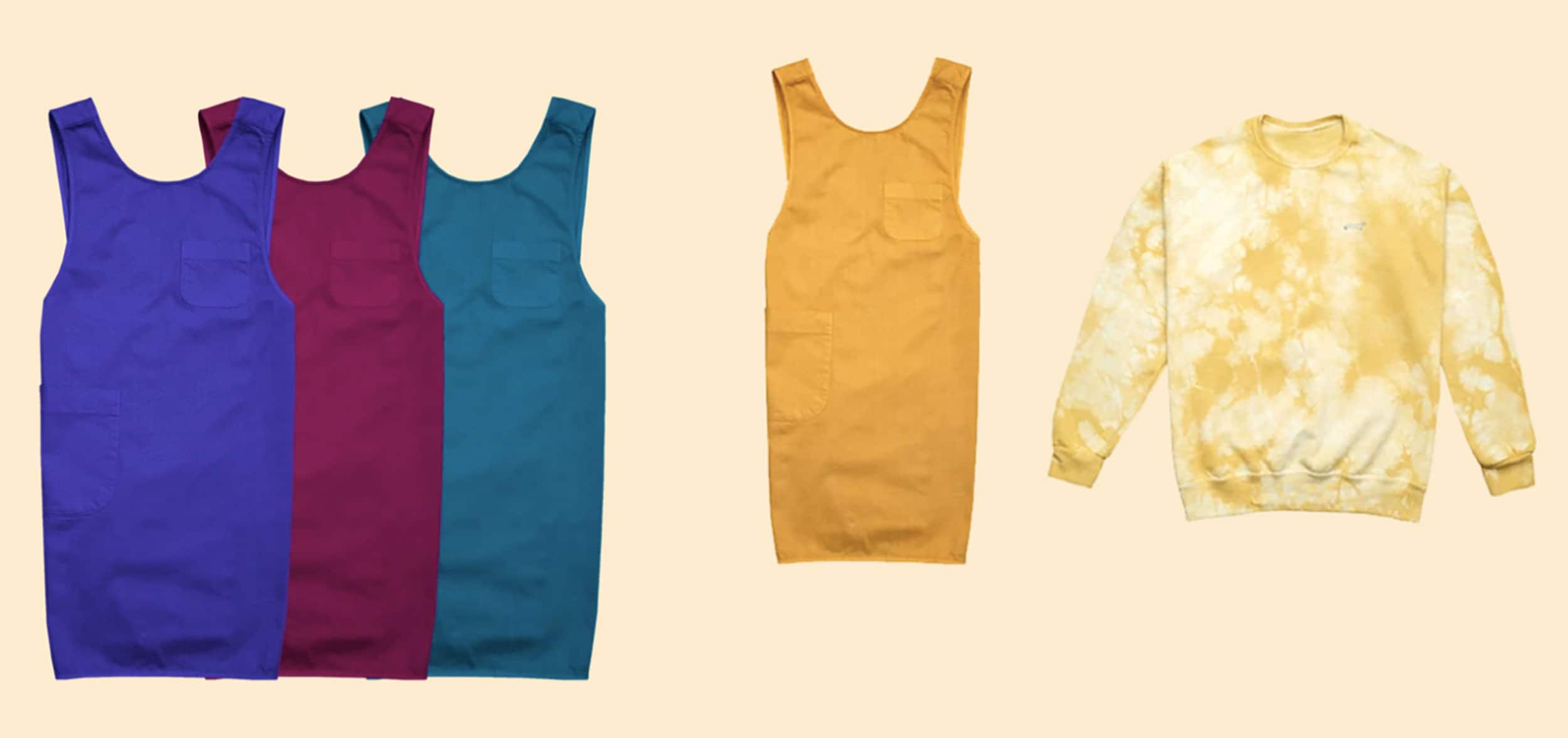
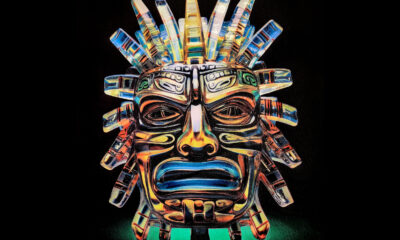
 Case Studies2 months ago
Case Studies2 months ago
 Art, Ad, or Alchemy2 months ago
Art, Ad, or Alchemy2 months ago
 Andy MacDougall2 months ago
Andy MacDougall2 months ago
 Columns4 weeks ago
Columns4 weeks ago
 Editor's Note3 weeks ago
Editor's Note3 weeks ago
 Marshall Atkinson3 weeks ago
Marshall Atkinson3 weeks ago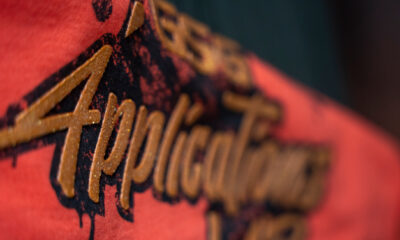
 Case Studies4 weeks ago
Case Studies4 weeks ago
 News & Trends2 months ago
News & Trends2 months ago
 “Normally when we do a sale, we’ll always have a few top sellers and a few that didn’t do so well, so we’ll know on the next drop to exclude those items, but overall, all of Molly’s items sold really well,” says Sindija. The top two items sold were the yellow apron and the yellow tie dye crew neck with Baz’s weenie dog, Tuna, embroidered on the chest. Sindija thinks these sold the most because Baz wore them while promoting the sale on Instagram. Baz has 620,000 followers (
“Normally when we do a sale, we’ll always have a few top sellers and a few that didn’t do so well, so we’ll know on the next drop to exclude those items, but overall, all of Molly’s items sold really well,” says Sindija. The top two items sold were the yellow apron and the yellow tie dye crew neck with Baz’s weenie dog, Tuna, embroidered on the chest. Sindija thinks these sold the most because Baz wore them while promoting the sale on Instagram. Baz has 620,000 followers (